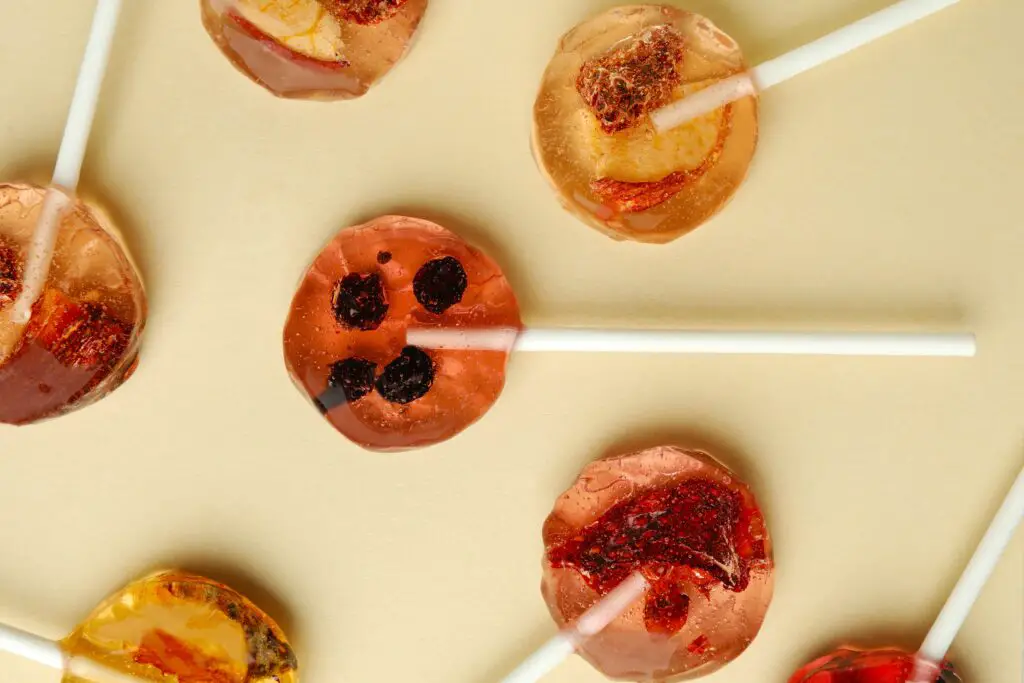Table of Contents
Sweet potatoes have recently become popular among diabetes-friendly foods for their exquisite taste, vibrant colors, and benefits. Packed with essential nutrients and versatile in culinary potential, sweet potatoes offer a nutritious alternative to traditional starches. Many wonder about the sugar in sweet potatoes and its effect on people with diabetes. With that in mind, this article aims to highlight “Is sweet potato good for diabetes?”, other diabetes superfoods, and much more.
Sweet potatoes and diabetes: Facts you should know
Diabetes management requires a thoughtful approach to food choices. Choosing the right foods can help control blood glucose and provide essential nutrients. Sweet potatoes are often a topic of discussion related to diabetes. Some of the questions that spark are their impact on blood sugar and their suitability as a dietary option. Therefore, it is essential to separate facts from misconceptions.
Does sweet potato have sugar? Nutrition facts
Sweet potatoes are a type of starchy vegetable. As the name suggests, they naturally contain sugars. However, sugar in sweet potatoes shouldn’t be automatically equated with being bad for health.
Fresh sweet potatoes primarily contain sucrose as their main sugar component. They also contain glucose and fructose (1) but not maltose. Interestingly, maltose will be formed when sweet potatoes undergo the cooking process (1).
A 100 g of raw sweet potatoes contains (2):

One of the main components of sweet potatoes is carbohydrates. These include starch, fibers, and sugars. In 100 g of sweet potatoes, there are 2.52 g of sucrose, 0.96 g of glucose, and 0.7 g of fructose (2).
It’s worth noting that these sugars are not very high. The sweetness of sweet potatoes is balanced by their nutrient, fiber, and antioxidant content. Therefore, the sugar in sweet potatoes should not be confused with added sugars found in sugary snacks and beverages.
Do sweet potatoes raise blood sugar?
As sweet potatoes do contain sugars, they have the potential to raise blood sugar. However, there are several factors that contribute to the overall effect on blood glucose levels. It is important to understand how they are digested and metabolized in the body.
One significant factor is the glycemic index (GI) of sweet potatoes. GI measures how quickly a particular food raises blood sugar levels. Sweet potatoes generally have a lower GI compared to other starchy foods. The value of their glycemic index can vary due to different varieties and cooking methods (3, 4, 5).

The different glycemic index (GI) values mean the overall impact of sweet potatoes on blood sugar can be affected by the cooking methods. Boiled sweet potatoes are recommended to retain the nutritional benefits while minimizing potential adverse effects on blood sugar.
However, it is important to remember that glycemic index (GI) is not the only factor to consider when choosing food for diabetes. The glycemic index may be low in protein-rich or fatty foods, but they still raise your insulin levels (6, 7).
Another often-used metric is the insulin index, which measures how fast your insulin responds to foods. This accounts for other components of the food intake. Since we are focusing on carbohydrates in this article, we will not discuss them here.
Other factors affecting sweet potatoes GI
Besides having natural sugars, sweet potatoes are also rich in dietary fiber. The fiber content aids in slowing down the absorption of sugar into the blood, thus promoting a gradual release of glucose (8). As a result, blood sugar levels are regulated and provide a steady source of energy (8).
Another contributing component is resistant starch. Resistant starch acts as fiber, which won’t be digested as sugar (9). Allowing sweet potatoes to cool and reheat before eating may lead to more resistant starch content (10, 11). Resistant starch may help lower blood sugar levels after meals and improve insulin sensitivity (12).
Are sweet potatoes bad for diabetes?
Sweet potatoes can be a part of a diabetes-friendly diet if consumed in moderation. Sweet potatoes have lower GI and fiber content and might be better for your blood sugar levels compared to other starchy foods. However, portion control is crucial to prevent significant spikes in blood sugar.
Even better, sweet potatoes are known to have rich antioxidant content (13). These components might play a role in preventing diabetes (14, 15). However, the available evidence on their effects on diabetes is currently limited and inconclusive.
Choosing the right preparation method and combinations is also important. Boiled or steamed sweet potatoes are great options to control blood sugar. Pair sweet potatoes with lean protein, non-starchy vegetables, and healthy fats to create well-rounded meals. In general, it is recommended by the American Diabetes Association to choose carbohydrates rich in dietary fiber, vitamins, and minerals and low in added sugar, fat, and sodium (16).
So, can people with diabetes eat sweet potatoes every day? Yes. Sweet potatoes can be enjoyed in a diabetes diet plan if consumed in controlled portions and prepared in healthy ways. Consulting with a registered dietitian can provide personalized guidance on including sweet potatoes as a part of a diabetes management strategy.
Sweet potatoes are safe to be part of a diabetes diet when consumed in moderation. Sweet potatoes have relatively low GI, high fiber, and high antioxidant content. This may result in a milder impact on blood sugar levels compared to other starchy foods. Boiled or steamed sweet potatoes are the best options to control blood sugar. But, portion control is crucial to prevent significant spikes in blood sugar.
Diabetes-friendly sweet potato recipes
Whether you’re looking for comforting classics or creative culinary delights, sweet potatoes can offer a nourishing experience. From savory to sweet options, these recipes are designed to cater to your dietary needs. So, let’s explore the world of diabetes-friendly sweet potato dishes that promote both wellness and enjoyment!
Holiday sweet potato bake
If you’re looking for a thick and creamy diabetes-friendly dish, this could be the answer. You can rely on this delectable dish to impress and satisfy a special occasion or family gathering. Crafted from lighter and healthier ingredients, this dish guarantees exceptional taste without compromising nutrition.
Sweet potato medley
This is a captivating and innovative take on the classic potato salad. This vibrant and hearty ensemble brings together the earthy goodness of sweet potatoes with flavors and textures that will leave your taste buds dancing. It’s a great dish for a light lunch, a side dish, or an appetizer.
Sweet potato strips
Get ready to experience a delightful twist on traditional fries. With their crispy exterior and tender interior, these fries will captivate your palate in every bite. It has the perfect balance of sweet and savory flavors, as each strip is seasoned and expertly baked to golden perfection.
Autumn spice-baked sweet potato
This classic side dish brings together the warmth of cinnamon, allspice, and nutmeg with the crunch of chopped walnuts. With its rich flavors and heartwarming aroma, this meal is so satisfying that you won’t even need a dessert to complete your meal.
Sweet potato mini meatloaves
These creations are the perfect fusion of turkey and sweet potatoes, crowned perfectly. Each meatloaf is a harmonious blend of flavors and textures, with tender turkey enveloped in a luscious sweet potato. This dish elevates the humble sweet potato to a gourmet sensation that will impress the most palates.
Chicken and sweet potato chili
This bowl of goodness combines chicken, sweet potatoes, and flavorful spices to create a gentle culinary masterpiece on blood sugar levels. Whether you’re managing diabetes or simply seeking a comforting dish, this dish promises to bring joy to every spoon.
Sweet potato velvet
This is a masterpiece of flavor and texture that transcends the boundaries of a traditional pie. Delighting the senses with its rich, smooth filling and aroma, this crustless pie elevates sweet potatoes to a new level. It’s the perfect guilt-free dessert and a show-stopping finale to your meal.
Can diabetics eat potatoes, and which types?
Potatoes are known to contain sugar because of them being starchy vegetables. But it doesn’t mean they can’t be included in a sugar-controlled diet. Let’s uncover some of the key points to include potatoes in your meal safely.
Do potatoes raise blood sugar?
Potatoes are a source of starch, which our body breaks down into sugar. While they can raise blood sugar levels, many factors can come into play. Different types of potatoes can have different glycemic indexes, which affect how fast the blood sugar rises (17). Cooking methods like boiling and baking will have a lower GI than frying (18). Lastly, controlling your portion sizes is crucial, as more potatoes mean more sugar.
Which potatoes are healthiest for diabetics?
When it comes to choosing the healthier potatoes for people with diabetes, aim for the lower GI value ones. Sweet potatoes, Carisma, and Nicola varieties are suggested to be the best potatoes for diabetes due to their low GI (17).
To preserve their low glycemic index, boiling and cooling them is recommended. Additionally, combining these potatoes with protein-rich foods, vegetables, or healthy fats can further help reduce the overall glycemic response (19).
Potato substitute for diabetics
So, are potatoes good for diabetes? Although they can be included in the diet, it may be more beneficial for people with diabetes to explore healthier substitutes. This is to manage blood sugar levels effectively.
Luckily, various alternatives can provide similar textures and flavors while offering better blood sugar control. Some of the alternatives you can try are:
- Cauliflower,
- Zucchini or eggplant
- Beans,
- Turnips,
- Sweet potatoes
- Rutabaga,
- Squash,
- Pumpkin
When trying out these alternatives, it’s important to keep portion sizes in mind. Additionally, consider the overall composition of the meal.
‘Superfoods’ for diabetes: What are they?
When it comes to managing diabetes, certain nutrient-rich foods are often dubbed diabetic ‘superfoods.’ These are foods that offer exceptional nutritional benefits. They can also be beneficial for individuals with diabetes.

Beans
Beans are a type of legume. Packed with protein, fiber, vitamins, and minerals, they offer many benefits. Beyond their nutritional value, beans are very versatile, allowing various ways of preparation.
Among the best beans for diabetes are red kidney beans, black beans, pinto beans, chickpeas, and white beans. They have a low glycemic index, high fiber, resistant starch content, and antioxidants; thus, theoretically, they can aid blood sugar control (20, 21, 22, 23). Moreover, they are excellent sources of protein that can solve malnutrition problems common in the elderly with diabetes (24, 25, 26, 27).
However, bear in mind that too much protein may be harmful to people with diabetes and severe chronic kidney diseases. If your doctor suggests a low-protein diet, you should reduce bean consumption.
Yam and diabetes
Yams, often confused with sweet potatoes, are another nutritious root vegetable. They are often a subject of interest for individuals with diabetes. This is due to their role as the source of carbohydrates but with a relatively lower glycemic index (28).
They contain high fiber and antioxidant components, contributing to the potential antidiabetic effect (29, 30). Some studies suggest a positive correlation between yams and their beneficial effects on diabetes (31). However, it’s important to note that the research conducted on humans is currently limited, and further investigation is needed.
Kale and other leafy greens
Another diabetes super food is kale, along with other leafy greens. Kale and other leafy greens are exceptionally low in carbohydrates and calories. They are high in dietary fibers, often linked to an improved ability to delay sugar absorption (32).
Green leafy vegetables contain polyphenols, such as vitamin C and carotenoids, which are known for their antioxidant properties (33). They’re also rich sources of vitamins A and K, folate, fatty acids, and magnesium (32, 33). These all explain their ability to improve insulin sensitivity and protective effects against type 2 diabetes (34).
Legumes
Besides beans, other legumes have also been recognized for their nutritional value and health benefits. For individuals with diabetes, legumes can offer several advantages in managing blood sugar levels. Legumes have a low glycemic index (GI). They’re also shown to effectively reduce the post-meal rise in blood glucose and insulin levels (35).
Moreover, the rich fiber content in legumes also helps improve insulin sensitivity (36). Improved insulin sensitivity can aid in better glucose control and reduce the risk of insulin resistance.
In addition to that, legumes offer essential nutrients such as vitamins, minerals, and antioxidants (37). These nutrients support overall health and assist in preventing chronic conditions.
Berries
Berries, such as blueberries, strawberries, raspberries, and blackberries, aren’t only delicious and packed with health-promoting properties. Berries are characterized by low calories, carbs, and fats while rich in fiber and polyphenols (38).
Besides, they are a source of micronutrients like vitamins C and E, folic acid, potassium, and manganese (39). Studies have shown the advantages of these compounds in regulating blood sugars (40). Their regular consumption is also linked to reduced risks of type 2 diabetes (41, 42, 43).
There are several foods considered to be beneficial for diabetes and overall health. These include beans, yam, kale, and other leafy greens, legumes, and berries. They contain high fiber, vitamins, essential minerals, and antioxidants. Those components may contribute to managing blood sugar levels, which makes them suitable for people with diabetes. Overall, the American Diabetes Association recommends a diet or eating patterns over specific foods. Diet plans such as Mediterranean-style, low-fat, low-carbohydrate eating plans, and Dietary Approaches to Stop Hypertension (DASH) are proven to be helpful in preventing type 2 diabetes (44).
Do sweet potatoes help lower your blood sugar?
Sweet potatoes are known for their relatively low glycemic index, high fiber content, and antioxidant properties. All of them may be beneficial for managing blood sugar levels. However, the available evidence on the specific impact of blood sugar lowering effects is currently inconclusive.
Are potatoes bad for prediabetes?
The effect of potatoes on prediabetes can depend on various factors. This includes the potato variety, cooking methods, portion size, and overall dietary context. Potatoes are naturally high in carbs, which can impact blood sugar levels. It’s always better to seek a professional’s opinion. The American Diabetes Association has recommended several helpful diets for preventing diabetes, such as Mediterranean-style, low-fat, low-carbohydrate eating plans and Dietary Approaches to Stop Hypertension (DASH).
Are carrots OK for people with diabetes?
Yes. Carrots are known for their low GI. It also provides important nutrients and dietary fibers. They’re suitable to be incorporated into any diet. However, portion control and consuming a balanced meal are highly suggested.
Are sweet potatoes good for gestational diabetes?
Yes, sweet potatoes can be a good option for people with gestational diabetes. They have a low GI compared to other starchy foods, high fiber, and important nutrients. As with any dietary decision during pregnancy, it’s essential to work closely with healthcare professionals.
Summary
Sweet potatoes are said to be a diabetes superfood due to being rich in vitamins, fiber, and antioxidants. Sweet potatoes naturally contain some sugar. But, they have a lower impact on blood sugars than regular potatoes. They can be included in a diabetes-friendly diet if combined with portion control and the right cooking method. It is a good idea to contact your nutritionists and other professionals to determine what works for you. This is due to individuals’ responses and situations that might be different from one another.

















Comments
0